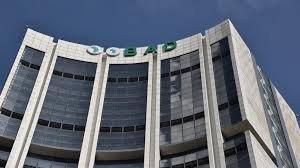Morocco’s economy is poised to grow by 3.9% in 2025, according to new forecasts released by the African Development Bank (AfDB) in its African Economic Outlook 2025. This projection is mirrored by the International Monetary Fund (IMF), which expects the same rate of expansion for the year, followed by a slight deceleration to 3.7% in 2026.
The anticipated growth is primarily driven by strong domestic demand, with a particular emphasis on investment-led activity, the resilience of non-agricultural sectors, and improved agricultural performance following projections of a better crop season.
Inflation and Fiscal Trends
Inflation is forecasted to remain moderate, standing at 2.0% in 2025 and slightly increasing to 2.3% in 2026, reflecting ongoing price stability and the effectiveness of monetary policy frameworks.
On the fiscal front, Morocco is expected to continue its deficit reduction trajectory, with the budget shortfall narrowing to 3.6% of GDP in 2025 and 3.3% in 2026. This improvement stems from tax revenue consolidation, as part of ongoing fiscal reforms, and a gradual reduction in subsidies, notably on butane gas.
External Position and Risks
Despite internal improvements, the current account deficit is projected to widen to 2.1% of GDP in 2025 and 2.6% in 2026, mainly due to a rise in infrastructure-related imports. This trend highlights the country’s strategic investment push, but also underscores growing external vulnerabilities.
The AfDB warns that economic prospects remain subject to climatic and external trade risks, including recurrent droughts and a decline in foreign demand, particularly in light of increased U.S. tariffs impacting export sectors.
To mitigate these risks, the AfDB recommends that Morocco prioritize:
Active water resource management
Climate shock resilience strategies
Trade diversification to enhance competitiveness
Morocco’s economic trajectory reflects a balanced recovery, supported by investment and structural reform, yet remains sensitive to both environmental and global economic headwinds. Continued policy vigilance and reform momentum will be crucial in sustaining inclusive and resilient growth.








